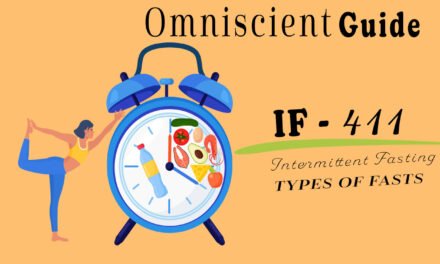- An Introduction To The Power Of Patience Series
- How To Harness Patience & Find Your True Potential
- Triggers, How to Identify And Prevent Them
- How To Use Cognitive Reframing To Enhance Patience
- Patience Through Gratitude, Achieve It Now
How to harness patience and find your true potential is the continuation of the series, the power of patience.
In our Introductory post, we focus on how patience is a remarkable virtue that significantly benefits all parts of our daily lives. Whether building stronger relationships or enhancing our decision-making skills. Patience empowers us to lead more fulfilling and purposeful lives by guiding us to accomplish long-term success patiently. Through patience, we can unlock our true potential, foster resilience, and develop the wisdom to navigate life’s complexities.
If you have not read our introduction to the power of patience series, follow this link or the one above to read it first before moving on to this next installment in the series.
In this installment, we will reflect on how to harness the power of patience and using it in your life for personal growth, nurturing lifelong healthy relationships, and having a fulfilling professional life. In addition, we will also guide you to cultivate your personal patience.
I. Patience is a vital part of Personal Growth
In order to harness the power of patience its important to see its relation to personal growth. In a world that often values immediate results and instant gratification, cultivating patience allows individuals to embrace the journey of self-mastery. Rather than fixating solely on desired outcomes, a person embracing patience can navigate challenges, and learn from setbacks, while developing a mindset that fosters continuous improvement.
Patience contributes to personal development by encouraging perseverance through obstacles and failures. When faced with setbacks, many find it is easier to give up. Yet, patience teaches us to view these challenges as opportunities for learning and growth. With a patient mindset, individuals cultivate resilience and develop the ability to bounce back from setbacks. And use them as stepping-stones toward progress.
Patience guides us to a point of self-reflection and allows us to pause before reacting impulsively to any situation, positive or negative. This deliberate approach fosters healthier relationships (read more about patience and relationships below)and deeper connections with those around us.
It also encourages individuals to appreciate learning and developing new skills. Rather than rushing to master a new skill or achieve immediate results, patience allows individuals to embrace the gradual progress and acknowledge that growth takes time. By recognizing that personal growth is a continuous journey, individuals can approach their goals with a sense of fortitude and enjoy the incremental improvements along the way.
II. Patience is the cornerstone of a flourishing relationship
Patience is an essential part of healthy and fulfilling relationships. By learning to harness the power of patience, we are continuously practicing patience. One of the core components of being patient is actively listening. This act of listening is one of the fundamental ways patience contributes to healthy relationships. Because patience encourages individuals to slow down, give their full attention, and genuinely listen to their partner or loved ones. By patiently hearing their perspectives, emotions, and concerns. This helps to establish a deeper understanding and strengthens the bonds of communication in relationships.
When we pay attention and understand other perspectives, we navigate conflicts with empathy and open-mindedness. Patience fosters commitment and support during challenging times, allowing relationships to grow and evolve. Embracing patience in relationships enables us to cultivate deeper connections. It also helps us to foster trust and build a sound foundation for long-lasting and meaningful bonds with our loved ones.
Our ability to be poised in any situation is vital in building and nurturing strong relationships. In a fast-paced world where instant gratification is often the norm, practicing patience allows us to develop deeper connections, enhance understanding, and navigate challenges with empathy and resilience.
Patience is essential in resolving conflicts and disagreements within relationships
As we all know, relationships inevitably have its ups-and-downs, and patience allows individuals to stay committed and supportive during difficult times. By being patient, individuals create a safe space for their partners or loved ones to express their emotions, share their struggles, and work through them together. Patience also fosters healing within relationships. Because resilience cultivates a more profound sense of connection.
Patience plays a vital role in nurturing long-term relationships. Yes, building solid connections and understanding takes time. However, patience allows us to accept that personal growth and positive relationship changes occur gradually. It encourages us to avoid rushing or pressuring our partners. While respecting their pace and individual journeys.
III. Patience is a Powerful Tool For Professional Success
Many people think that patience is a sign of weakness. I think this is a mistake. It is anger that is a sign of weakness, whereas patience is a sign of strength. -14th Dalai Lama
When pursuing professional success, to harness the power of patience can be a powerful tool.
By cultivating patience, individuals can maintain focus and commitment to their goals. They can also make strategic decisions, seize opportunities at the right time, and remain resilient in the face of challenges. Patience allows us to navigate our careers with a strategic point of view, ensuring sustainable growth and achievement. Embracing patience in professional pursuits paves the way for fulfilling careers, lasting accomplishments, and a sense of fulfillment when pursuing professional success.
Patience is a valuable attribute that is critical to achieving professional success.
Cultivating patience in a fast-paced and competitive world allows individuals to make strategic decisions, persist through challenges, and achieve long-term goals. It also helps individuals navigate the complexities of their careers, seize opportunities at the right time, and maintain a resilient mindset.
One of the critical ways patience contributes to professional success is by allowing individuals to stay focused and committed to their goals. Patience encourages them to maintain a long-term perspective, recognizing that success often requires time, effort, and perseverance. By embracing tolerance, individuals can avoid being discouraged by setbacks or the absence of immediate results and instead stay motivated and determined to pursue their aspirations.
Patience also plays a crucial role in making wise and strategic decisions in the professional realm.
It prevents rushing into hasty choices driven by short-term gains or instant gratification. Patient individuals take the time to gather information, analyze options, and carefully evaluate the potential risks and rewards of different courses of action. This thoughtful approach helps to make informed decisions that align with long-term goals and contribute to sustainable success.
To Harness, The Power of Patience could mean experiencing opportunities at the right time.
Success often requires waiting for the ideal moment to make a move or take advantage of a promising opportunity. By practicing patience, it’s possible to avoid impulsivity and premature actions and instead be attentive to market trends, industry developments and optimal timing for taking significant steps forward. An approach that includes patience maximizes the chances of success and minimizing potential risks.
To utilize the power of Patience also means fostering adaptability in the face of challenges.
Patience helps individuals weather periods of uncertainty, setbacks, or slow progress without losing motivation or confidence. Patient individuals understand that setbacks and obstacles are part of the journey toward success. They remain resilient, learn from failures, and adjust their strategies when necessary. This form of adaptability allows them to navigate shifting circumstances and capitalize on emerging opportunities.
How to Harness the power of Patience

While patience may come more naturally to some, it is a quality that you can also accomplish with conscious effort and practice. Here are some strategies to cultivate patience.
1. Mindfulness and Self-Awareness
Practicing mindfulness helps develop self-awareness and an understanding of our thoughts, emotions, and reactions. By being present in the moment and observing our inner experiences without judgment, we can identify moments of impatience and work on responding more calmly and thoughtfully.
2. Set Realistic Expectations
Unrealistic expectations can lead to frustration and impatience. Setting realistic goals and timelines allows for a more stoic approach. Recognize that personal growth, success, and achieving desired outcomes require time and effort.
3. Practice Delayed Gratification
Delaying immediate gratification influences cultivating patience. Individuals build discipline and resilience by resisting the urge for instant rewards or results. Practice delaying gratification in small ways, such as waiting before indulging in a treat or saving for a more significant purchase.
4. Develop Coping Strategies
Engage in activities that help manage stress and promote patience. This can include practicing deep breathing exercises, meditation, engaging in physical activities, or pursuing hobbies that bring a sense of calm and relaxation. These coping strategies contribute to emotional balance and help manage impatience during challenging situations.
5. Cultivate Empathy
Empathy allows individuals to understand others’ perspectives and appreciate their journey. By practicing empathy, individuals can develop patience and understanding in their interactions. Take the time to listen actively, consider others’ viewpoints, and practice kindness in daily interactions.
6. Embrace the Process
Patience involves embracing the process and being present in the moment. Shift the focus from solely fixating on the result to appreciating the journey, learning from experiences, and finding joy. Embracing the process allows individuals to find fulfillment and satisfaction in the present moment.
7. Learn from setbacks and failures
Rather than becoming discouraged by setbacks or failures, view them as opportunities for growth. Practice patience by reframing setbacks as valuable experiences contributing to personal development and resilience. Use these experiences as stepping-stones toward progress and improvement.
8. Seek Support and Guidance
Cultivating patience can be challenging, and seeking support from others can be beneficial. Surround yourself with positive influences, mentors, or friends who embody patience and can provide guidance and encouragement. Sharing experiences and learning from the journey of others can inspire and reinforce the cultivation of patience.
 Reflecting on what it means to harness the power of patience, according to the Buddha
Reflecting on what it means to harness the power of patience, according to the Buddha
The fool thinks he has won a battle when he bullies with harsh speech,
But knowing how to be forbearing- that makes one victorious.
The worse of the two is he who, when abused, retaliates.
One who does not retaliate wins a battle hard to win.
Knowing that the other person is angry, one who remains mindful and calm
Acts for his own best interest and for the other’s interest, too.
He is a healer of both himself and the other person also.
He is thought a fool only by those who do not understand the Dhamma
Dhammapada. The greatest prayer is patience.
Summary
To harness the power of patience is a virtue that holds immense power in our lives. It influences our personal growth, strengthens our relationships, and enhances our chances of professional success. Through patience, we develop resilience, emotional intelligence, and a greater appreciation for the journey rather than being solely focused on the outcome.
While patience may be challenging to practice in a world that demands immediate results, it is a skill that we can cultivate and hone. By embracing tolerance, we empower ourselves to make better decisions, nurture meaningful connections, and achieve long-term goals.
As we reflect on the power of patience, let’s remember that it is not about passively waiting, but an active and intentional mindset. Patience allows us to embrace the present moment, persist through challenges, and savor the rewards. In a society driven by haste, patience is a beacon of strength, guiding us toward a more fulfilling and purposeful life.
Listen to our podcast episode on the power of patience here.








